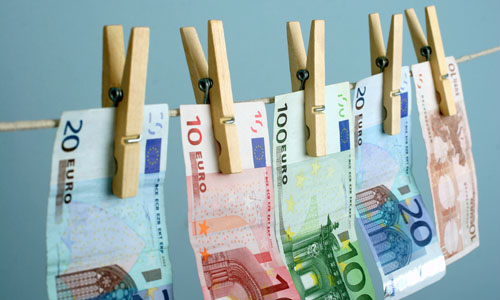The EU is now developing its own black list of money laundering par havens. Last Tuesday, the European Commission published its methodology to identifying high-risk third countries for money laundering and terrorist financing.
Since the Fourth Money Laundering Directive, adopted in 2015, the Commission has had the task of adopting, through delegated acts, a list of third countries with serious shortcomings in the area of money laundering or terrorist financing. The list must be updated regularly and the EU Parliament can reject it. So far, the Commission has blindly followed the recommendations of the International Financial Action Task Force (FATF) for drawing up the EU black list. In January and May 2017, Parliament rejected two delegated acts following strong green initiative in order to persuade the Commission to produce their own assessment of third countries. Commissioner Vera Jourova announced in July 2017 that the Commission would develop its own methodology for the evaluation of third countries and start the evaluation itself in 2018. By the end of this year, the Commission intends to assess the third countries with the highest risk of money laundering, and the assessment of all other countries should be completed by 2025.
Third countries on the EU black list are not threatened with sanctions for the time being. The European Anti-Money Laundering Directive only obliges companies operating in the EU to exercise greater due diligence when dealing with natural or legal persons domiciled in these money laundering havens.
MEP Sven Giegold, financial and economic policy spokesperson of the Greens/EFA group commented:
“The Commission’s independent assessment of money laundering havens is another step towards an own money laundering supervision in the EU. The European Parliament has taken the Commission’s hounds to the hunt. As long as Panama and other major financial crime centres are still not blacklisted internationally, the Commission cannot simply copy-paste the FATF list. The Commission’s independent assessment of money laundering havens offers the chance of a black list that lives up to its name.
We welcome the Commission’s intention to assess the third countries with the highest risk by the end of the year. However, it would take far too long to take time until 2025 for completing the investigation of all countries. To speed up the process, the Commission’s Anti-Money Laundering and Financial Crime Task Force needs more staff and adequate resources. Commission President Juncker promised the European Parliament that this unit would be adequately staffed and Commissioner Jourova should therefore be given green light to recruit further experts. The increases in staff so far are far from enough in view of the billions of criminal money. It is unacceptable that the EU Commission spends millions on data collection from air passengers against terrorism, but only is so greedy when it comes to terrorist financing and money laundering.
It is good that the Commission has the sole responsibility for the black list of money laundering havens. Contrary to the black list of tax havens that the European Member States are secretly negotiating, we hope for an objective assessment of the black list of money laundering havens. However, the Commission must keep the European Parliament informed of the results of the evaluation process, in particular the list of countries with the highest risk must be made transparent”.
Procedure of the EU Commission to identify third countries with a high risk of money laundering in accordance with Directive (EU) 2015/849:
https://ec.europa.eu/info/sites/info/files/swd_2018_362_f1_staff_working_paper_en_v2_p1_984066.pdf

